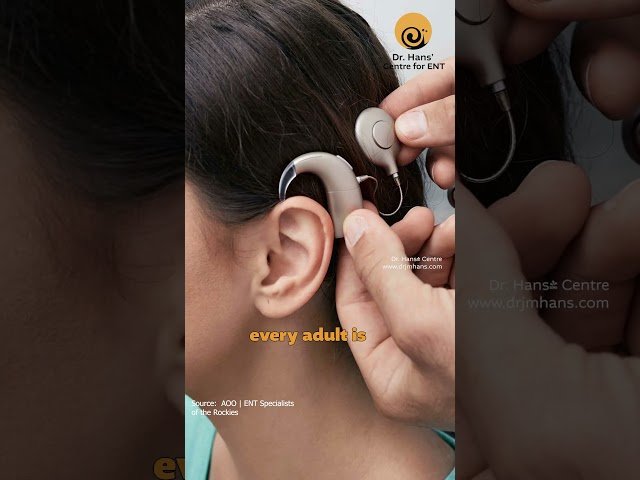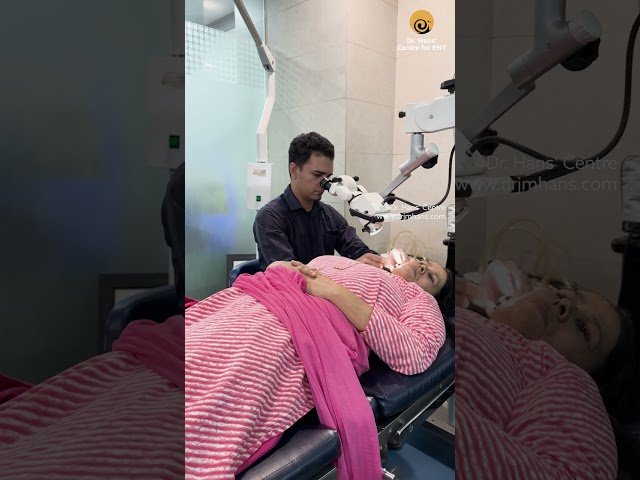Dizziness & Vertigo (Neuro-otology)
Understanding the Causes of Vertigo
Vertigo is a sensation that makes you feel as if you or your surroundings are spinning or moving, even when you’re standing still. It can be disorienting and alarming, but understanding its causes can help manage and treat this condition effectively. Here are some common causes of vertigo:
1. Inner Ear Issues
The inner ear plays a crucial role in balance. Problems in this area are among the most common causes of vertigo:
- Benign Paroxysmal Positional Vertigo (BPPV): This occurs when tiny crystals of calcium carbonate (otoconia) become dislodged in the inner ear, leading to brief episodes of vertigo when you change the position of your head.
- Vestibular Neuritis or Labyrinthitis: These conditions involve inflammation of the inner ear or the nerves connecting the inner ear to the brain, often caused by viral infections. Symptoms may include severe vertigo along with hearing loss or tinnitus (ringing in the ears).
- Meniere’s disease: Ménière’s disease is a disorder of the inner ear that causes severe dizziness (vertigo), ringing in the ears (tinnitus), hearing loss, and a feeling of fullness or congestion in the ear. The symptoms of Ménière’s disease are associated with a fluid imbalance in a part of the inner ear called the labyrinth.
- Vestibular migraine: It is a problem that causes repeated dizziness (or vertigo) in people who have a history of migraine symptoms.
- Vestibulopathy: It is a chronic vestibular syndrome which is characterized by unsteadiness when walking or standing, which worsen in darkness and/or on uneven ground, or during head motion.
- Vestibular paroxysmia: The main symptoms of vestibular paroxysmia (VP) are brief attacks of spinning or non-spinning vertigo which lasts a fraction of a second to a few minutes and occurs with or without ear symptoms (tinnitus and hypo- or hyperacusis).
2. Migraines
Migraines aren’t just about headaches; they can also cause episodes of vertigo. This is often referred to as vestibular migraine, where individuals may experience dizziness and vertigo even in the absence of a headache.
3. Head Injuries
Trauma to the head can damage the inner ear or brain areas responsible for balance. Concussions and other head injuries can lead to temporary or chronic vertigo.
4. Neurological Disorders
Certain neurological conditions can affect balance and lead to vertigo, including:
- Multiple Sclerosis (MS): This autoimmune disease affects the central nervous system, potentially leading to balance issues and vertigo.
- Parkinson’s Disease: This degenerative disorder can affect balance and coordination, causing dizziness and vertigo.
5. Medications
Some medications can have side effects that include dizziness or vertigo. This is particularly common with certain antibiotics, antidepressants, and medications for high blood pressure. If you notice vertigo after starting a new medication, consult your doctor.
6. Circulatory Problems
Issues related to blood flow, such as low blood pressure or transient ischemic attacks (mini-strokes), can lead to feelings of dizziness and vertigo. These conditions can disrupt the brain’s ability to maintain balance.
7. Dehydration and Low Blood Sugar
Both dehydration and low blood sugar levels can lead to dizziness and feelings of vertigo. Maintaining hydration and balanced blood sugar levels can help prevent these sensations.
While vertigo can be unsettling, understanding its causes is the first step toward finding relief. If you experience recurrent or severe vertigo, it’s essential to consult a healthcare professional for a proper diagnosis and treatment plan tailored to your needs. Early intervention can help manage symptoms and improve your quality of life.
Specialist Advice

Adult Cochlear Implant: Part 1

Adult Cochlear Implant part 02

Understanding Congenital Hearing Loss: Deafness from Birth

Seasonal changes and ENT Problems

What is Sleep Apnea and its Symptoms? Part 01

Who is most affected by Sleep Apnea? Part 02

Skin prick allergy test process

